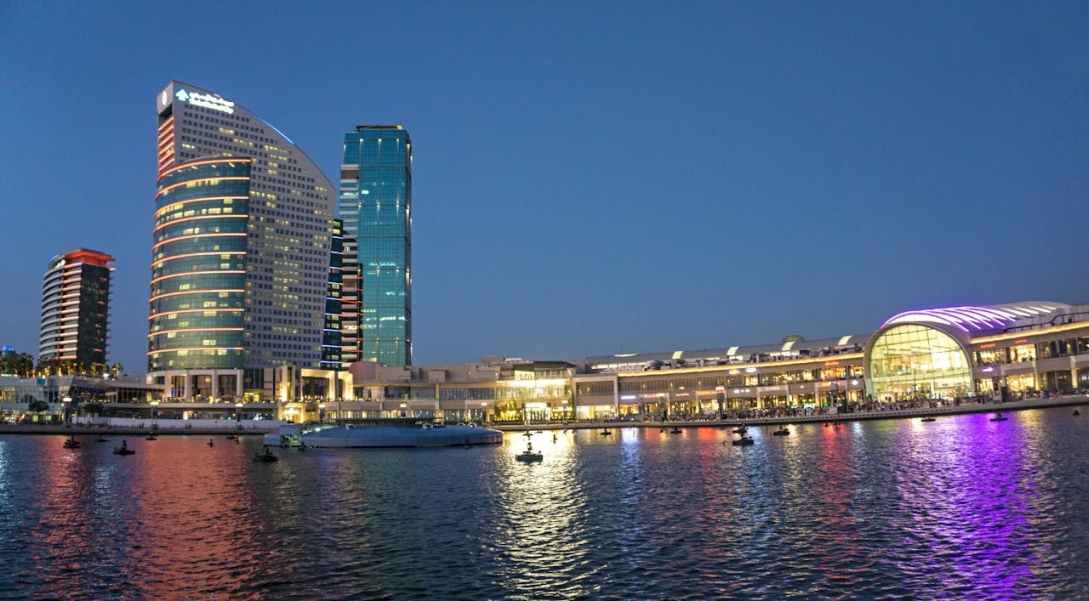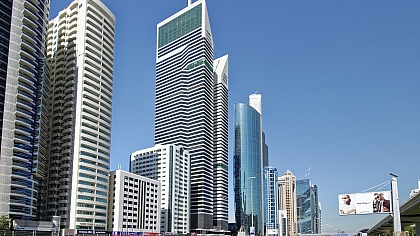
How to Establish a Local Presence in Dubai Without a Physical Office
Dubai's dynamic, globally connected market has made it a top choice for businesses aiming to establish a strong regional presence. Thanks to advances in technology, businesses can now create a significant local impact without setting up physical office space. As remote work and digital solutions continue to evolve, businesses can seamlessly enter Dubai's vibrant marketplace, saving costs while tapping into a vast consumer base, by imitating strategies that are similar to those from the local region.
Whether you're a startup aiming to connect with a new audience or an established company expanding into competitive regions like Dubai, Abu Dhabi, or beyond, implementing virtual offices, localized marketing, and regional communication strategies is key to creating a thriving, location-independent presence.
Remote Work and Its Strategic Advantages in Dubai
Remote work has transformed business operations worldwide, and Dubai is no exception. The city’s excellent digital infrastructure and emphasis on innovation make it ideal for businesses adopting remote work. With flexible working arrangements, employees can connect from any part of the world while providing services to Dubai-based clients, allowing companies to tap into the adoption of the local market with minimal overhead. Moreover, remote work fosters productivity and supports a healthy work-life balance, attracting global talent and promoting operational efficiency.
Remote work offers many benefits, but Dubai’s consumers expect companies to understand and respect local culture and etiquette. To build trust, companies entering the Dubai market can use strategies like local phone numbers and culturally relevant communication—even virtually—to create a meaningful presence.
This applies globally as well. Customers in cities like New York expect companies to respect local norms, so tools like a 212 phone number can help businesses feel more integrated into the community.
Building Local Presence Through Virtual Offices in Dubai
A virtual office can be an invaluable tool for businesses seeking a foothold in Dubai. Virtual offices give companies the professional benefits of a traditional office—such as a local address and reception service—without the high costs associated with renting physical space. This approach allows remote businesses to present themselves as local entities, fostering trust with Dubai-based customers while maintaining operational flexibility.
With a virtual office in Dubai, businesses can have a professional business address in a prime location, offering clients the impression that they’re directly connected to the city. Many virtual office providers in Dubai also offer meeting room rentals on an as-needed basis, which is especially helpful for firms looking to host in-person meetings occasionally. Such setups make it easier for companies to project a professional image and signal their commitment to the local market.
The Importance of Localized Phone Numbers in Dubai
In Dubai's business culture, accessibility and responsiveness are paramount, and having a local phone number plays a key role in establishing credibility. When customers see a Dubai-based number, they’re more likely to view the company as an integrated part of their community and reach out with greater confidence. Local phone numbers create a sense of familiarity and are often a deciding factor for clients choosing between service providers.
In a virtual setting, it’s now easier than ever for companies to acquire Dubai-based phone numbers that forward calls internationally. This setup allows businesses to respond to client needs while maintaining the appearance of a local entity. For companies entering Dubai’s high-end market, localized phone communication is crucial to make a lasting impression and compete with established players.
Why Localizing Your Presence Matters in Dubai
Localization is essential to connect with Dubai’s sophisticated, multicultural consumer base. Dubai’s residents come from various backgrounds, each bringing unique values and expectations, making it essential for companies to understand and respect these diverse cultural perspectives. Consumers in Dubai gravitate toward businesses that recognize local customs and embrace regional sensibilities. Whether adapting marketing messages to Arabic-speaking audiences or showing sensitivity to local holidays and cultural practices, companies can deepen their customer relationships by thoughtfully integrating Dubai’s unique identity into their branding.

Localization efforts that meet cultural expectations help businesses differentiate themselves in Dubai’s competitive landscape. For instance, incorporating local elements into digital ads or social media campaigns can be an effective way to resonate with Dubai’s residents. Likewise, companies that adapt to Dubai’s culture—through visual branding, language choices, and respectful communication—are more likely to build lasting connections, gain loyalty, and enhance brand recognition.
The Path to Long-Term Success in Dubai’s Virtual Economy
Dubai’s rapidly shifting business environment demands innovative approaches to establishing a local presence. With the city’s strong digital economy, companies can benefit immensely by adopting virtual strategies over physical expansion. Remote work, virtual offices, and localized marketing allow businesses to be nimble and cost-effective while reaching an audience that values modernity, professionalism, and convenience.
By aligning with Dubai’s dynamic business culture, companies can successfully navigate its competitive marketplace without a physical office. Embracing these strategies helps businesses become more adaptive and consumer-focused, setting a foundation for sustainable growth and a strong brand identity in Dubai’s thriving economy.
FAQ: Is it Legal to Establish a Local Presence in Dubai Without a Physical Office?
Yes, it is possible and generally legal to establish a business presence in Dubai without a physical office, but there are important regulations to follow. Dubai offers various options, such as virtual offices and flexible licensing options, that allow companies to operate without traditional office space. Here’s what you need to know to ensure compliance:
1. Business Structure and Licensing
Mainland Companies: Dubai requires that most companies operating in the mainland have a physical office space to receive a trade license. However, recent reforms in Dubai have introduced more flexibility, especially for certain types of service-oriented businesses and consultancies, allowing them to function remotely. These reforms support remote work setups, especially for businesses that don’t need a physical storefront or manufacturing space.
Free Zones: Many free zones in Dubai offer virtual licenses, which allow companies to operate remotely and conduct their business online. Some free zones, like Dubai Internet City or Dubai Multi Commodities Centre (DMCC), offer packages specifically designed for freelancers, startups, and entrepreneurs who want to operate without a dedicated physical office. This option is popular among tech companies, consultancies, and e-commerce businesses.
2. Virtual Office Solutions
Virtual offices are legal and common in Dubai's free zones. These offices provide businesses with a registered address and professional services, like mail handling and call forwarding, giving the business an official presence without requiring employees to be physically present.
Dubai has several providers of virtual office spaces that cater to companies seeking to meet local presence requirements without full-fledged office rentals. This setup is legal as long as it complies with the free zone’s or licensing authority's guidelines.
3. Economic Substance Regulations (ESR)
Companies conducting certain types of "relevant activities" in Dubai (e.g., banking, finance, intellectual property business) must demonstrate economic substance in the UAE, which could include having a physical office and meeting minimum staff and expenditure requirements. If your business does not fall into these categories, you may not need a physical office to comply with ESR.
4. Tax Residency and Compliance
For tax purposes, a company may still need to demonstrate a degree of presence in Dubai, even without a physical office, to comply with the UAE’s corporate tax and VAT rules. Having a virtual office, bank accounts, and a dedicated UAE-based contact can help satisfy local presence requirements.
5. Remote Work Permits and Freelance Licenses
Dubai now offers "virtual working" permits, allowing remote work for companies based outside the UAE without requiring physical office space in Dubai. Freelance licenses are also available through many free zones, allowing individuals to work independently without the need for a physical office.
6. Operating Under a Distributor or Partner Agreement
Some companies establish a Dubai presence by partnering with local distributors or agents. This arrangement is common for businesses looking to enter the Dubai market without setting up a full office. However, it’s essential to structure these agreements carefully to align with Dubai’s commercial laws.
While establishing a local presence without a physical office is feasible, it is crucial to select the correct licensing route and ensure compliance with the rules of your chosen free zone or licensing authority. Consulting with a local legal advisor can provide valuable guidance specific to your business model and ensure that you meet all legal requirements.











